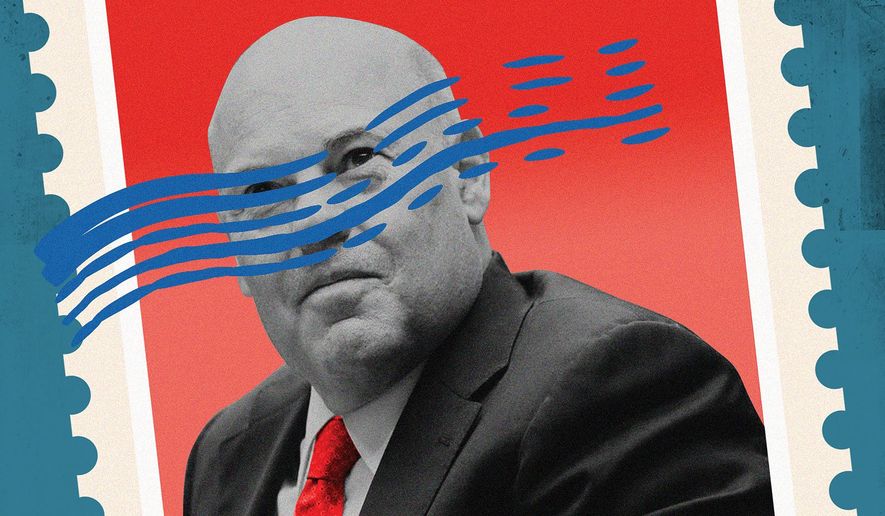OPINION:
Controversial U.S. Postmaster General Louis DeJoy’s initiatives to get the chronically mismanaged United States Postal Service back on sound financial footing are already bearing good fruit. His back-to-basics approach, which relies on strengthening core competencies and relying on increased efficiency, will likely keep U.S. taxpayers from having to spend billions to keep one of the world’s oldest postal systems in operation.
A Trump appointee, Mr. DeJoy drew the ire of progressives during the 2020 campaign when they accused him of making changes that would interfere with the ability of voters who could not get to the polls because of pandemic restrictions from voting by mail.
It would be a shame if partisan political concerns were allowed to derail his reform plans. The 10-year program Mr. DeJoy has pulled together will allow it to remain a self-sustaining entity funded by those who use the mail to send letters, catalogs, magazines, and packages for years going forward. The allegations against him have generally been disproven, at least as far as his leadership of the postal service is concerned. Some nonetheless would like to use them to block his initiatives from being enacted, even those Congress has endorsed in the bipartisan postal reform legislation currently under consideration.
The Postal Service Reform Act of 2021 (introduced in the U.S. Senate by Democrat Gary Peters of Michigan and Republican Rob Portman of Ohio) gives the Postal Service what it needs to eventually return to profitability.
Absent congressional approval for Mr. DeJoy’s plan, the USPS projects losses of more than $150 billion over the next 10 years. Mr. DeJoy and congressional postal leaders understand the problem — the decline in mail volume that’s taken place since the introduction of email and text messaging — and at least part of the solution, which lies in its e-tail driven package business.
It’s a strange turn of events. The last time Congress passed a piece of postal reform legislation, the primary concern was that the Postal Service might use earnings from its monopoly mail business to subsidize the cost of comprehensive package delivery — a globally competitive business.
Instead, the opposite occurred. Package deliveries are keeping the Postal Service afloat. Last year they generated a net $11 billion for the USPS over and above what it costs to deliver packages to every address in the continental United States six days a week.
The advantage that Mr. DeJoy’s plan leverages is the USPS unique, integrated delivery network. Congress agrees to the point it codifies in the pending postal bill the policy and practice of delivering mail and packages together at least six days per week.
Its competitors in the package business are less than happy with that since it forces them to compete with the Postal Service more aggressively. Rather than being able to raise their prices after using political leverage to force the Postal Service to raise theirs, they must now do the hard work of seeking efficiencies on their own to maximize profits. If it were done any other way, the private express companies would benefit while those who depend on it like the elderly who need critical medical supplies shipped to them by mail and those at home (especially in rural areas) who get consumer goods and other household necessities via their local postal delivery person would suffer.
The pending postal bill requires the Postal Service to be more transparent about its service performance, does not set prices or interfere with plans to adjust service standards, or hinder plans to adjust mail and package processing abilities to reflect market realities. It also removes the problematic requirement that retiree health benefits be prefunded and moves them into Medicare, which they’ve already contributed to throughout their working lives.
At the same time, the legislation keeps the Postal Service from entering the commercial marketplace in other areas where it has no expertise like banking that some in Congress have proposed, which is probably why the bill before the U.S. Senate was introduced by eight Republicans and eight Democrats.
The DeJoy plan should be implemented. The postal reform bills moving through Congress toward President Joe Biden’s desk would give it a chance to show the Postal Service can be saved without a bailout, to the benefit of everyone.
• Peter Roff, a former UPI and U.S. News & World Report columnist, is now affiliated with several Washington-D.C.-based public policy organizations. He appears regularly on the One America News network. Follow him on Twitter @PeterRoff.




Please read our comment policy before commenting.